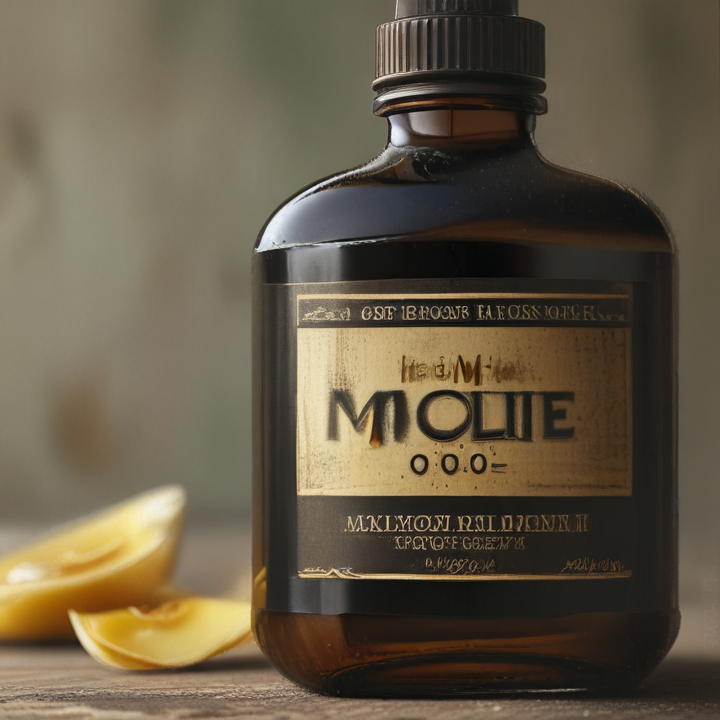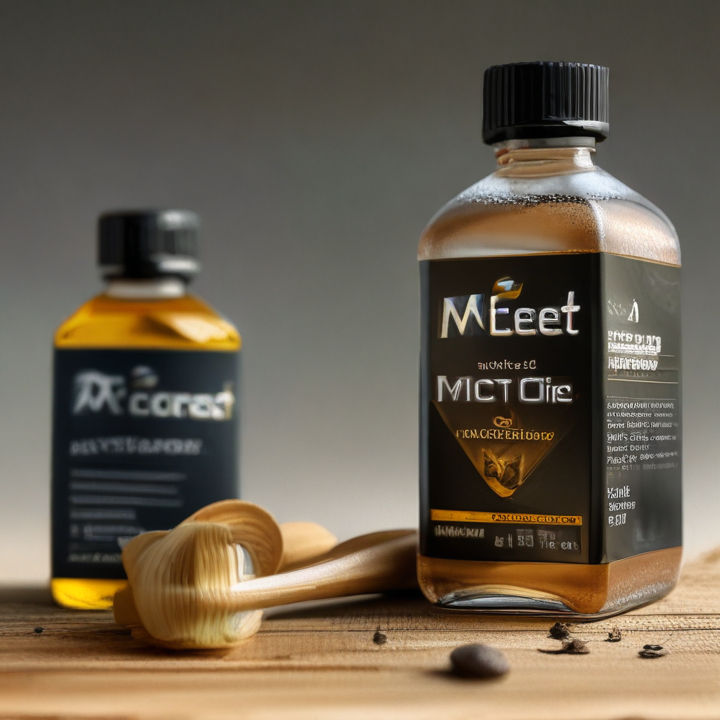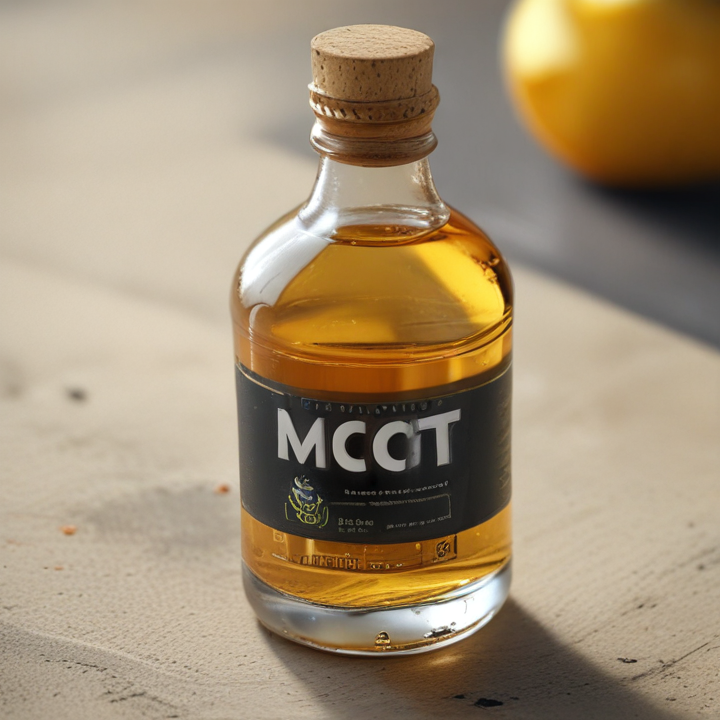mct olie Safety Certifications
Medium-Chain Triglyceride (MCT) oil is derived primarily from coconut oil and palm kernel oil, and it is often used as a dietary supplement due to its numerous health benefits. Ensuring the safety and quality of MCT oil involves several certifications and safety measures:
1. Good Manufacturing Practices (GMP):
GMP certification ensures that MCT oil is produced in a clean and controlled environment. The standards cover everything from raw material quality to the final product packaging, ensuring consistency and safety.
2. Organic Certification:
This certification is crucial for consumers who prioritize natural and chemical-free products. Organic MCT oil is made from organically grown coconuts or palm kernels, free from pesticides and synthetic fertilizers.
3. Non-GMO Certification:
Non-GMO certification is essential for consumers concerned about genetic modification. This certification ensures that the MCT oil is free from genetically modified organisms.
4. ISO Certification:
International Organization for Standardization (ISO) certifications such as ISO 22000 for food safety management systems can demonstrate that the MCT oil is produced in line with international safety standards.
5. HACCP Certification:
Hazard Analysis and Critical Control Points (HACCP) certification focuses on identifying and managing potential hazards during the production process. It is vital for ensuring the oil is safe for consumption.
6. Kosher and Halal Certifications:
These certifications ensure that the MCT oil complies with Jewish and Islamic dietary laws, respectively, expanding its reach to a larger consumer base.
7. Third-party Testing and Quality Assurance:
Independent laboratories often perform third-party testing to verify the product’s purity and absence of contaminants like heavy metals, pesticides, and microbial growth.
Ensuring these certifications are in place helps guarantee that MCT oil is safe, ethical, and of high quality, fostering consumer trust and regulatory compliance.
List Reference Technical Parameters of “mct olie”
MCT oil, short for Medium-Chain Triglyceride oil, is a supplement derived from coconut oil or palm kernel oil. It contains medium-chain fatty acids, typically caprylic (C8) and capric (C10) acids. Here are its reference technical parameters:
1. Composition:
– Caprylic Acid (C8): 50-80%
– Capric Acid (C10): 20-50%
– Lauric Acid (C12): Generally less than 3%
2. Physical Properties:
– Appearance: Clear, colorless to light yellow liquid.
– Odor and Taste: Tasteless and odorless.
– Density: Approximately 0.92 g/mL at 25°C.
– Viscosity: 25-30 cP (centipoise) at 25°C.
3. Chemical Properties:
– Iodine Value: Less than 1.
– Specific Gravity: 0.92 to 0.93 at 25°C.
– Saponification Value: 325 to 360 mg KOH/g.
4. Nutritional Information:
– Energy: About 8.3 calories per gram.
– Fat Content Breakdown:
– Total Fat: 14 g per tablespoon (~15 mL)
– Saturated Fat: 14 g per tablespoon
5. Stability and Storage:
– Oxidation: MCT oil is less prone to oxidation compared to long-chain triglyceride oils, offering good shelf stability.
– Storage Conditions: Store in a cool, dry place away from direct sunlight.
6. Solubility:
– Soluble in organic solvents; slightly soluble in ethanol.
– Insoluble in water.
7. Hydrolytic Stability:
– MCT oil maintains stability under mild hydrolytic conditions but may degrade under extreme conditions (high temperature and moisture).
8. Usage:
– Commonly used as a dietary supplement to promote energy and ketogenic benefits.
– Employed in sports nutrition, weight management, and medical nutrition.
These parameters collectively define the quality and usability of MCT oil for both nutritional and industrial applications.
List Product features of “mct olie”
Certainly! Here’s a concise list of product features for MCT oil:
1. Medium Chain Triglycerides (MCTs): Comprises primarily caprylic (C8) and capric (C10) acids, which are rapidly absorbed and utilized for energy by the body.
2. Energy Boost: Provides a quick, efficient source of energy, ideal for athletes or anyone needing an energy boost.
3. Supports Ketosis: Enhances ketone production, making it a popular supplement in ketogenic diets to aid fat burning.
4. Cognitive Function: May improve mental clarity and cognitive performance by providing an immediate energy source for the brain.
5. Weight Management: Could help with weight loss or management by increasing satiety and boosting metabolism.
6. Digestive Health: Generally easy to digest compared to other fat sources, reducing gastrointestinal discomfort for some individuals.
7. Antimicrobial Properties: The caprylic acid component exhibits antimicrobial effects, potentially benefiting gut health.
8. Versatile Usage: Can be added to coffee, smoothies, salad dressings, and various recipes without altering the taste.
9. Stable Shelf Life: Typically has a long shelf life and doesn’t require refrigeration, making it convenient to store.
10. Vegan and Dairy-Free: Suitable for vegan and dairy-free diets, providing an alternative source of healthy fats.
11. Pure and Natural: Often derived from 100% coconut oil and free from palm oil, additives, and fillers.
12. Non-GMO and Gluten-Free: Most MCT oils are non-GMO and can be consumed safely by those with gluten sensitivities.
In summary, MCT oil is a versatile, quick-absorbing fat that supports energy, cognitive function, and weight management, making it a valuable supplement for a variety of dietary and health needs.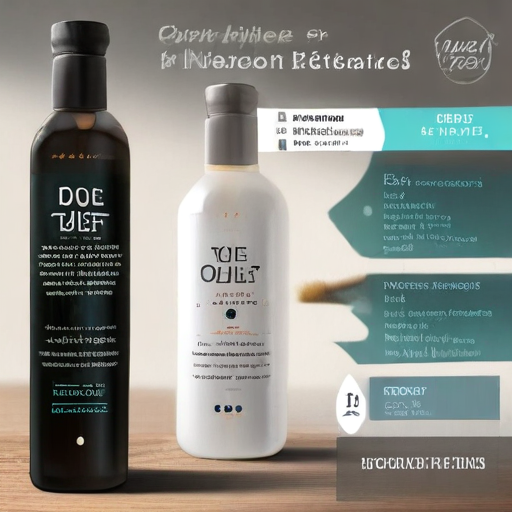
List Various Types of “mct olie”
“MCT olie” refers to medium-chain triglyceride (MCT) oil, a type of fat commonly used as a supplement and oil. Various types of MCT oil are distinguished based on the chain length of the fatty acids they contain. Here are the primary types:
1. Caproic Acid (C6)
– Rarely used in supplements due to its sour taste and potential to cause digestive discomfort.
2. Caprylic Acid (C8)
– Quickly converted into energy, making it popular among those looking for rapid ketone production.
– Often used for cognitive enhancement and physical performance.
3. Capric Acid (C10)
– Slower to convert into energy than C8 but still effective.
– Provides a more sustained energy release, suitable for prolonged activities.
4. Lauric Acid (C12)
– Longer-chain MCT, takes more time to metabolize.
– Present in coconut oil and contributes to antimicrobial properties.
5. Blended MCT Oils
– Manufacturers often blend C8, C10, and sometimes C12 to create a balanced profile.
– Offers a mix of immediate and sustained energy.
Different extraction methods and purity levels also affect the types of MCT oils:
1. Pure MCT Oils
– Highly refined to include specific MCTs like C8 or C10.
– Preferred for targeted benefits like quick energy or cognitive function.
2. Coconut-Derived MCT Oil
– Extracted primarily from coconut oil.
– Contains a combination of C8, C10, and C12.
– Typically less processed, maintaining some natural properties of coconut oil.
3. Palm-Derived MCT Oil
– Extracted from palm kernel oil.
– Often used in the same manner as coconut-derived MCT oil but controversial due to environmental concerns.
In summary, the type of MCT oil you choose—whether pure C8 for quick energy, a blend for balanced benefits, or coconut-derived for a more natural profile—depends on your specific needs and health goals.
List Application of “mct olie”
MCT oil, derived from medium-chain triglycerides, is a versatile supplement with various applications across health, wellness, and fitness domains. Here are some key uses:
1. Weight Management: MCT oil is popular in keto and low-carb diets for its ability to promote satiety and increase fat burning, aiding in weight loss.
2. Energy Boost: It provides a quick source of energy as MCTs are rapidly absorbed and converted into ketones, which the body can use as fuel, making it ideal for athletes and those needing a quick energy boost.
3. Cognitive Function: MCT oil supports brain health by potentially improving memory and cognitive function. It’s particularly beneficial for those on ketogenic diets or individuals dealing with cognitive impairments.
4. Improved Digestion: It can support digestive health by balancing gut bacteria and improving nutrient absorption, aiding those with digestive issues.
5. Anti-Microbial Properties: MCT oil has natural anti-microbial and anti-fungal properties, helping to combat harmful bacteria and pathogens within the body.
6. Better Athletic Performance: Athletes use MCT oil to enhance endurance and performance. Its ability to be quickly metabolized ensures sustained energy during workouts.
7. Skin and Hair Health: When applied topically, MCT oil can moisturize the skin and hair, offering benefits similar to coconut oil without the greasy residue.
8. Blood Sugar Management: MCT oil may help regulate blood sugar levels, making it a useful supplement for individuals with insulin resistance or diabetes.
9. Anti-Inflammatory Effects: Its anti-inflammatory properties can help reduce inflammation throughout the body, benefiting conditions like arthritis.
10. Nutrient Absorption: MCT oil enhances the absorption of fat-soluble vitamins and minerals, supporting overall nutritional status.
Incorporating MCT oil into daily routines can contribute to various health benefits, though consulting with healthcare professionals is advised before starting any new supplement regimen.
List Buyer Types of “mct olie”
“MCT olie” or Medium-Chain Triglyceride oil is a type of fat that is rapidly absorbed and converted into energy, making it popular among various consumer groups. Below are the primary buyer types of MCT oil:
1. Fitness Enthusiasts and Athletes:
– Reason: Many fitness enthusiasts and athletes use MCT oil for its quick energy release, which helps enhance performance and endurance during workouts.
2. Ketogenic and Low-Carb Diet Followers:
– Reason: MCT oil is high in fat but low in carbs, making it ideal for individuals on ketogenic or low-carb diets. It helps to maintain ketosis and provides a reliable energy source.
3. Health-Conscious Individuals:
– Reason: General health-conscious buyers use MCT oil for its potential benefits on metabolism, weight management, and cognitive function.
4. Biohackers:
– Reason: Individuals interested in optimizing their bodily functions (“biohacking”) use MCT oil aiming to improve mental clarity, focus, and overall cognitive performance.
5. People with Digestive Issues:
– Reason: MCT oil is easier to digest compared to long-chain fats, making it a favorable option for people with digestive issues, such as those with malabsorption conditions.
6. Seniors:
– Reason: Some older adults use MCT oil to help support brain health and reduce the risk of cognitive decline.
7. Weight Management Seekers:
– Reason: Those aiming for weight loss may use MCT oil to boost metabolism and increase satiety, helping to control food intake.
8. Coffee Drinkers:
– Reason: MCT oil is a key ingredient in “bulletproof coffee,” popular among those looking to increase energy levels and mental focus, particularly in the morning.
9. Gourmet Shoppers:
– Reason: Used as a cooking ingredient due to its high smoke point and neutral flavor, making it a versatile addition to various dishes.
In summary, MCT oil caters to a broad audience, from athletes to the elderly, each seeking its unique health benefits.
List “mct olie” Project Types for Different Industries
Certainly! Medium-chain triglyceride (MCT) oil is used across various industries for its unique properties and health benefits. Below are project types for different industries:
Food & Beverage Industry
1. Health Foods: Integration of MCT oil into health snacks like energy bars, smoothies, and salad dressings for enhanced nutritional value.
2. Nutraceuticals: Development of MCT oil supplements aimed at improving cognitive and physical performance.
3. Special Diet Products: MCT oil-infused products for ketogenic and other low-carb diets.
Pharmaceutical Industry
1. Drug Delivery Systems: Research on MCT oil as a lipid-based carrier for enhancing bioavailability of fat-soluble drugs.
2. Therapeutic Formulations: Formulating medications for conditions like epilepsy and Alzheimer’s, where MCT oil’s ketone-boosting properties can be beneficial.
Cosmetics & Personal Care
1. Skin Care Products: Development of moisturizers and anti-aging creams utilizing MCT oil for its skin-penetrating and hydrating properties.
2. Hair Care: Designing shampoos and conditioners that incorporate MCT oil for improved scalp health and hair strength.
3. Cosmetics: Formulation of lip balms and makeup products that include MCT oil for better texture and longevity.
Fitness & Sports Nutrition
1. Protein Shakes: Enrichment of protein or nutritional shakes with MCT oil for better energy and endurance.
2. Pre-Workout Supplements: Creation of MCT oil-based pre-workout formulas to enhance athletic performance and recovery.
Animal Health
1. Pet Foods: Integration of MCT oil into pet foods to boost energy and improve coat quality.
2. Veterinary Formulations: Developing supplements for animal health that utilize MCT oil’s anti-inflammatory and cognitive benefits.
Industrial Applications
1. Lubricants: Research on using MCT oil as a biodegradable, eco-friendly lubricant.
2. Biotechnology: Utilization of MCT oil in bioreactors for more efficient microbial growth and product yield.
Agriculture
1. Animal Feed: Formulating high-energy feeds for livestock that incorporate MCT oil.
2. Pesticide Formulations: Using MCT oil as a carrier for organic, biodegradable pesticides.
These project types illustrate the versatility of MCT oil in various sectors, ranging from health and wellness to industrial applications.
mct olie Accessories Upgrades and Custom Manufacturing Options
MCT (Medium Chain Triglyceride) oil is celebrated for its various health benefits, including improved cognitive function and enhanced energy levels. To optimize its use, a range of accessories, upgrades, and custom manufacturing options are available.
Accessories
1. Dispensing Pump: Simplifies pouring and reduces mess.
2. Travel Bottles: Ideal for on-the-go usage, often featuring leak-proof and compact designs.
3. Measurement Scoops: Precise dosing ensures optimal benefits without wastage.
4. MCT Oil Capsules: Convenient for those who prefer a pill form over liquid.
5. Mixing Blenders: Specialized blenders designed to evenly mix MCT oil with other ingredients.
Upgrades
1. Flavored MCT Oils: Options like vanilla, cinnamon, or coconut can make consumption more enjoyable.
2. Enhanced Formulations: Combining MCT oil with additional nutrients like Omega-3s or antioxidants.
3. Eco-Friendly Packaging: Sustainable and recyclable materials for environmentally conscious consumers.
4. Certified Organic: Certifications like USDA Organic ensure higher quality and purity.
Custom Manufacturing Options
1. Private Labeling: Businesses can have custom-branded MCT oil products.
2. Custom Blends: Tailored to specific dietary needs, such as ketogenic blends or vegan-specific formulations.
3. Bulk Production: For large-scale needs, offering competitive pricing and tailored shipping options.
4. Custom Bottling: Various sizes and types of bottles to match branding needs.
5. Third-party Testing & Certification: Ensures the product meets specific quality and safety standards.
These enhancements and customizable features not only improve user experience but also cater to niche markets and specific consumer requirements. Utilizing these options can significantly extend the appeal and functionality of MCT oil products.
List Quality Control and The Manufacturing Process of “mct olie”
Quality Control of MCT Oil:
1. Raw Material Verification:
– Ensure the purity and quality of the coconut or palm kernel oil used as the source.
– Use supplier certification and lab tests for verification.
2. Process Monitoring:
– Maintain stringent temperature and pressure conditions during production.
– Continuous monitoring to ensure compliance with production standards.
3. Microbial Testing:
– Test for bacterial, fungal, and other microbial contaminants.
4. Chemical Analysis:
– Verify the absence of heavy metals, pesticides, and other harmful substances.
– Use Gas Chromatography to ensure accurate medium-chain triglyceride content.
5. Stability Testing:
– Check the shelf-life of the oil under various environmental conditions.
6. Sensory Evaluation:
– Assess for color, odor, and taste to align with product specifications.
7. Packaging Inspection:
– Ensure that containers are sealed and labeled correctly and free from defects.
8. Documentation:
– Maintain thorough records of each batch for traceability and quality assurance.
Manufacturing Process of MCT Oil:
1. Selection of Raw Material:
– Source high-quality coconut oil or palm kernel oil.
2. Extraction:
– Extract oil through mechanical pressing or solvent extraction.
3. Purification:
– Purify extracted oil to remove impurities through filtration and refining.
4. Fractionation:
– Heat the oil to 90-100°C and separate long-chain triglycerides from medium-chain triglycerides via distillation.
5. Esterification and Destillation:
– React fatty acids with glycerol to form triglycerides.
– Separate desired MCTs using fractional distillation.
6. Quality Control Checks:
– Perform chemical, microbial, and sensory testing on the final product.
7. Packaging:
– Fill purified MCT oil into designated containers.
– Seal, label, and prepare for distribution.
8. Storage and Distribution:
– Store under recommended conditions to maintain quality.
– Distribute while ensuring handling guidelines are met to preserve oil integrity.
Through stringent quality control and a precise manufacturing process, high-quality MCT oil is produced, meeting both industry standards and consumer expectations.
How to use “mct olie”
MCT oil, or Medium-Chain Triglyceride oil, is a supplement often used for its potential health benefits, including boosting energy and supporting weight management. Here’s a concise guide on how to use it:
1. Start Slow: Begin with a small dose, such as 1 teaspoon per day, to minimize digestive issues. Gradually increase to 1-2 tablespoons daily, if desired.
2. Morning Kickstart: Add MCT oil to your morning coffee or tea for an energy boost. Blend it into bulletproof coffee – a popular recipe that combines coffee, MCT oil, and butter.
3. Smoothies: Mix MCT oil into your smoothies. It blends well and can help keep you feeling full longer.
4. Salads: Drizzle it over salads as a dressing component or mix it into dips and sauces.
5. Cooking: Use MCT oil in low to medium-heat cooking. Avoid high-heat cooking since MCT oil has a lower smoke point than some other oils.
6. Baking: Substitute a portion of the oil or butter in baking recipes with MCT oil to incorporate its benefits.
7. Pre-Workout: Take MCT oil before workouts to potentially increase your energy levels and performance.
8. Keto Diet: If you’re on a ketogenic diet, MCT oil can help you stay in ketosis by providing quick, usable fat.
Remember:
– Consult a Healthcare Provider: Especially if you have any medical conditions or are using it for specific health goals.
– Quality Matters: Choose a high-quality, pure MCT oil from a reputable source.
– Listen to Your Body: Monitor how your body responds and adjust the amount accordingly.
In summary, MCT oil can be a versatile addition to your diet. Start with small amounts, incorporate it into various meals, and adapt based on your needs and preferences.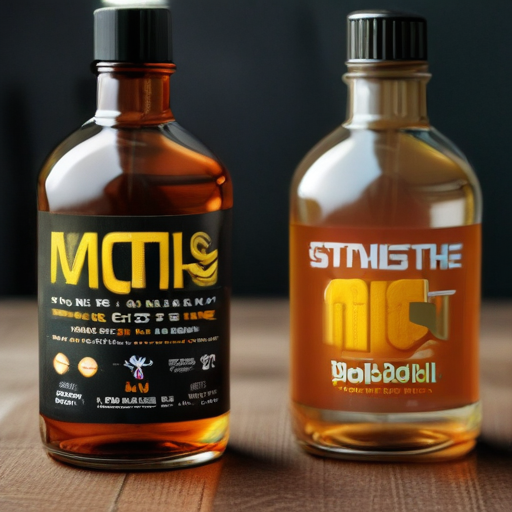
“mct olie” Comparative Analysis
MCT oil, short for Medium-Chain Triglycerides oil, is gaining traction for its purported health benefits, especially among fitness enthusiasts and those following ketogenic diets. As an easily digestible source of energy, it stands apart from traditional fats.
Types and Sources
MCT oil is primarily derived from coconut oil and palm kernel oil. It consists of four types of triglycerides: Caproic Acid (C6), Caprylic Acid (C8), Capric Acid (C10), and Lauric Acid (C12). However, most commercial MCT oils mainly contain C8 and C10 due to their favorable metabolic properties.
Nutritional Benefits
MCTs are rapidly absorbed and converted into ketones in the liver, providing a quick energy source without the insulin spike. This makes it particularly attractive for:
– Weight Management: MCT oil can increase fullness and may aid in reducing body fat through increased thermogenesis.
– Cognitive Function: Ketones provide an alternative fuel for the brain, possibly enhancing cognitive performance, particularly useful in neurodegenerative conditions like Alzheimer’s.
– Athletic Performance: As an easily burnable fuel, it can potentially enhance endurance and reduce lactate buildup in athletes.
Comparative vs. Other Fats
– Vegetable Oils: Unlike long-chain triglycerides (LCTs) found in oils like olive or canola, MCTs require less energy for absorption and storage.
– Butter and Ghee: While butter and ghee provide steady energy, MCT oil offers quicker energy release, well-suited for fasted states.
Potential Downsides
– Digestive Issues: High intake can lead to gastrointestinal discomfort.
– Sustainability: Palm kernel-derived MCT oil often raises ethical and environmental concerns. Coconut-derived MCT oil is a more sustainable option.
Conclusion
MCT oil offers numerous benefits, especially for energy, cognition, and weight management, making it a valuable supplement for specific dietary lifestyles. However, its impact varies among individuals, and potential digestive side effects and sustainability considerations should be weighed. As with any supplement, it’s advisable to start with small amounts and consult healthcare providers.
“mct olie” Warranty and Support
When it comes to purchasing MCT oil, understanding the warranty and support policies can provide peace of mind and ensure a positive customer experience. While policies may vary by brand, here’s a general overview that might apply to many MCT oil products:
Warranty:
Most MCT oil products don’t come with a formal warranty, as they are consumable goods. However, several brands offer satisfaction guarantees or return policies. Typically, if a customer finds the product defective or unsatisfactory, they might be eligible for a replacement or a refund. It’s important to check the specific terms of the brand you’re purchasing from. Some companies might require the product to be returned within a certain timeframe, often 30 to 60 days, and may ask for proof of purchase.
Support:
Customer support for MCT oil is usually readily available and can be accessed through various channels:
1. Customer Service Hotline: Many brands provide a toll-free number where customers can ask questions about the product, usage instructions, or resolve any issues.
2. Email Support: If you prefer written communication, email support is often available. Response times can vary, but reputable companies usually reply within 24-48 hours.
3. Live Chat: Some companies offer live chat support on their websites for real-time assistance.
4. FAQs and Documentation: Many brands also have comprehensive FAQ sections on their websites that address common questions and concerns, including storage instructions, dosage recommendations, and ingredient information.
5. Social Media: Many companies maintain active social media profiles and might respond to inquiries made via platforms like Facebook, Twitter, or Instagram.
Returns and Exchanges:
If you need to return or exchange your MCT oil, it’s important to follow the specific instructions provided by the retailer or brand. This often involves contacting customer support first to initiate the process and obtaining a return authorization.
In summary, while MCT oil products generally don’t come with traditional warranties, most reputable brands offer reliable support and satisfaction guarantees to ensure a positive customer experience. Always check the specific policies of the brand you are purchasing from.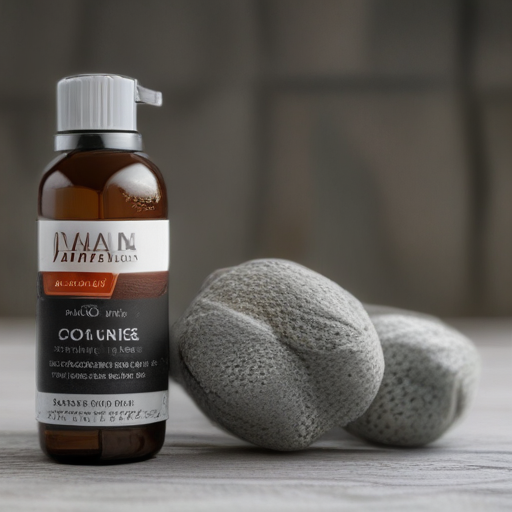
List “mct olie” FAQ
MCT Oil FAQ
1. What is MCT Oil?
MCT (Medium-Chain Triglycerides) oil is a type of fat derived from coconut oil or palm kernel oil. It contains medium-length chains of fats called triglycerides, which are more rapidly absorbed and metabolized compared to long-chain triglycerides.
2. What are the benefits of MCT oil?
MCT oil is known for several benefits, including:
– Quick energy source: Can be quickly converted into ketones for energy.
– Weight management: May promote a feeling of fullness and assist in weight loss.
– Cognitive function: Supports brain health and mental clarity.
– Athletic performance: Provides a sustainable energy source for endurance activities.
3. How should I use MCT oil?
MCT oil can be added to:
– Smoothies and shakes
– Coffee or tea (often called “Bulletproof Coffee”)
– Salad dressings and sauces
– Baking and cooking (with low to medium heat)
4. What is the recommended dosage of MCT oil?
Start with 1 teaspoon per day to allow your body to adjust, gradually increasing to 1-3 tablespoons daily. Overconsumption may lead to digestive issues like diarrhea or cramps.
5. Are there any side effects?
Common side effects may include gastrointestinal distress, such as bloating and diarrhea, especially if taken in large amounts initially. Start with small doses to minimize these effects.
6. Is MCT oil suitable for everyone?
While MCT oil is generally safe for most people, those with liver issues or who require a high-fat restricted diet should consult a healthcare professional before using it.
7. Can MCT oil help with ketosis?
Yes, MCT oil can help increase ketone levels, making it a popular choice among those following a ketogenic diet.
8. Is there a difference between MCT Oil and Coconut Oil?
Yes, MCT oil is more concentrated in medium-chain triglycerides, providing quicker energy, while coconut oil contains both medium and long-chain triglycerides.
9. How should MCT oil be stored?
Store MCT oil in a cool, dark place, away from direct sunlight, to maintain its quality and potency. No refrigeration is needed.
Using this concise FAQ can help you understand and effectively utilize MCT oil in your daily routine.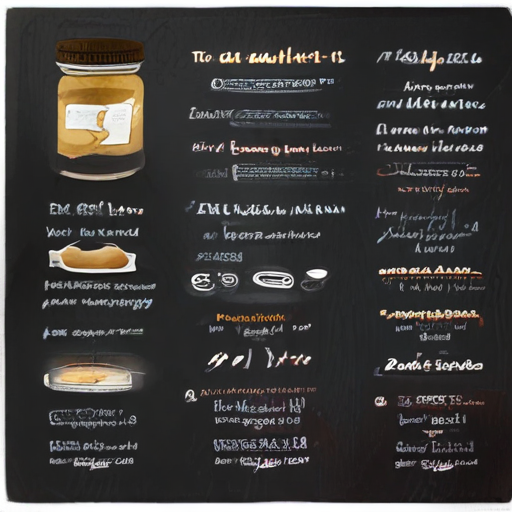
Top 10 FAQ with answer about mct olie for Buyer Sourcing from China
Certainly! Here’s a compact FAQ about sourcing MCT oil from China:
1. What is MCT oil?
– MCT (Medium Chain Triglycerides) oil is a supplement made from a type of fat found in coconut oil, palm oil, and some dairy products. It’s widely used for its health benefits, including energy boost and weight management.
2. How is the quality of MCT oil from China?
– Chinese suppliers offer MCT oil of varying quality. Ensure to source from certified manufacturers with good track records, proper certifications (like ISO, HACCP), and positive customer reviews.
3. What are the major forms of MCT oil available for sourcing?
– It mainly comes in liquid and powder forms. Liquid MCT oil is most common, while the powdered form is preferred for easy mixing in food products and supplements.
4. Are there any quality certifications to look for?
– Look for certifications like ISO 9001, HACCP, GMP, and organic certifications. These ensure the product meets international safety and quality standards.
5. What is the usual lead time for delivery from China?
– Lead times can range from 2 to 6 weeks depending on the order quantity, customization, and shipping method (sea freight, air freight).
6. Can I request samples before placing a bulk order?
– Yes, most suppliers offer samples. It’s advisable to test samples for quality assurance before committing to bulk purchases.
7. What is the Minimum Order Quantity (MOQ) typically required?
– MOQs can vary but generally range from 100 to 1,000 liters. Some suppliers might be flexible, depending on the business relationship.
8. How do I verify the credibility of a supplier?
– Use platforms like Alibaba, GlobalSources, or Made-in-China with verified supplier statuses. Check for third-party audits, client testimonials, and trade assurance.
9. Are there any potential import taxes or duties?
– Import taxes and duties vary by country. Consult with local customs or a freight forwarder to understand specific import costs applicable to MCT oil.
10. What packaging options are available?
– Packaging ranges from bulk containers to consumer-ready bottles. Options include plastic jugs, glass bottles, and sachets, with possibilities for custom labeling.
By keeping these FAQs in mind, you can navigate the sourcing process more efficiently and ensure you receive a high-quality product that meets your business needs.


